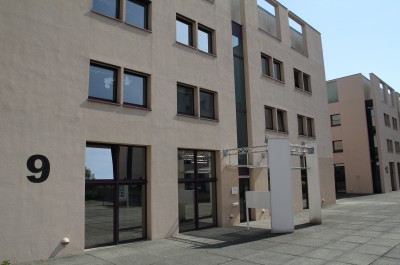| Project period |
2001 – 2006
| Project staff |
| Funding |
Own funds
| Cooperation partner |
Prof. Dr. Elke Heise (Technische Universität Braunschweig)
| Project description |
The project evaluated the LoGo programme, the name of which stands for ‘Leben ohne Gewalt organisieren’ – ‘Organising Life Without Violence’. The LoGo training courses carry forward the idea of the earlier Anti-Aggression Training (AAT) and are offered to violent offenders in juvenile detention.
The training is directed at young offenders who have committed multiple or particularly serious violent crimes. The aim is to reduce male detainees’ propensity to violence by sensitising them to the causes and effects of their violent conduct. The training is made up of 19 weekly 2½-hour group sessions. The groups consist of eight detainees, two specialist service workers (one male and one female trainer) and a prison officer. The group sessions mainly apply didactic approaches to bring about behavioural modifications.
The evaluation of the LoGo training courses aims (a) to appraise the efficacy of the training in relation to goal attainment, (b) to investigate the differential effectiveness of the training according to type of offence, previous convictions, time in detention and detainees’ motivation to take part, and (c) to analyse the course of the training with a view to identifying factors conducive or obstructive to attainment of the training goals.
For evaluation of the LoGo training, the study design has been extended compared with the AAT evaluation, in that assessment of the training’s efficacy is based on an increased range and number of data sources. The survey comprises standardised interviews with applicants for LoGo training before selection and at the beginning and end of the training programme, and standardised offender record forms filled in after each session. Additionally, about five years after completion of the training, an information request for each participant is submitted to the Federal Central Criminal Register (BZR). Applicants for LoGo training who are not selected for the then current training course are used as an untrained control group for comparison with the group in training.
In order to compare the results with the evaluation study on the treatment of young sex offenders likewise conducted in the Hameln juvenile detention centre, the study design and survey instruments of the two projects were coordinated across the two projects.

